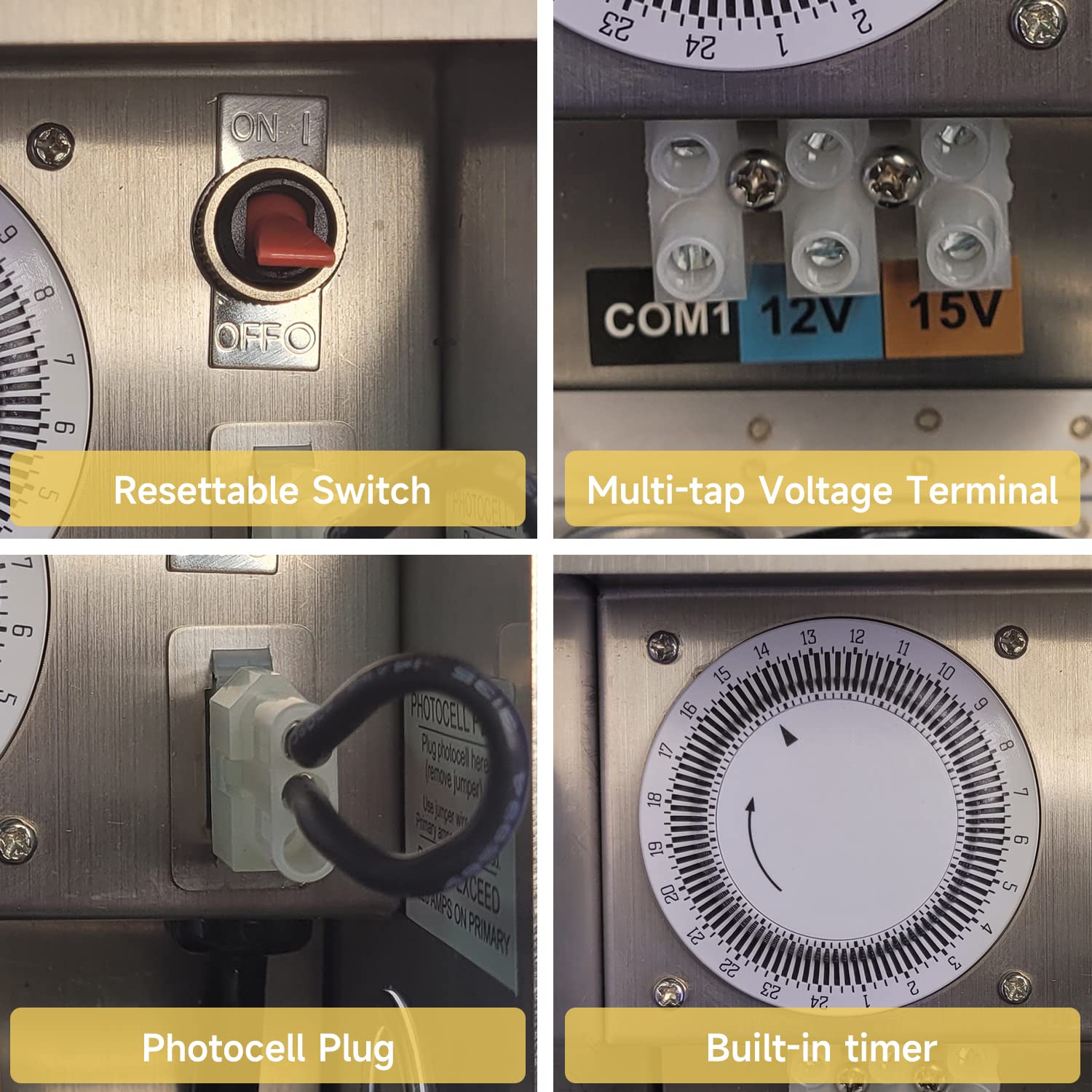Understanding the Importance of Corrosion Resistance in Garden Lighting Transformers
Cuerpo
When it comes to outdoor lighting, garden lighting transformers play a crucial role in ensuring that your outdoor space is well-lit and visually appealing. However, one of the key factors that often gets overlooked is the importance of corrosion resistance in these transformers. In this article, we will delve into the significance of corrosion resistance in garden lighting transformers and why it is essential for their longevity and performance.

The Impact of Corrosion on Garden Lighting Transformers
Corrosion is a natural process that occurs when metal is exposed to environmental factors such as moisture, oxygen, and pollutants. In the context of garden lighting transformers, corrosion can significantly impact their functionality and lifespan. When corrosion sets in, it can lead to electrical issues, decreased efficiency, and ultimately, the failure of the transformer. This not only poses a safety hazard but also results in the need for frequent replacements, adding to the overall cost and maintenance of outdoor lighting systems.
Enhancing Durability with Corrosion-Resistant Materials
One of the most effective ways to combat the detrimental effects of corrosion is by utilizing corrosion-resistant materials in the construction of garden lighting transformers. Stainless steel, aluminum alloys, and weather-resistant coatings are examples of materials and treatments that can provide a high level of protection against corrosion. By incorporating these elements into the design of transformers, manufacturers can significantly enhance their durability and performance, even in harsh outdoor environments.
Ensuring Long-Term Reliability
Investing in corrosion-resistant garden lighting transformers not only safeguards against premature failure but also ensures long-term reliability. These transformers are better equipped to withstand the rigors of outdoor conditions, including exposure to rain, snow, and fluctuating temperatures. As a result, they continue to operate at optimal levels, providing consistent illumination for your garden without the need for frequent maintenance or replacements.
The Economic and Environmental Benefits
From an economic and environmental standpoint, the use of corrosion-resistant garden lighting transformers offers several advantages. By reducing the frequency of replacements and repairs, property owners can save on costs associated with maintenance and energy consumption. Additionally, the longevity of these transformers contributes to a reduction in electronic waste, aligning with sustainable practices and minimizing the environmental impact of outdoor lighting systems.
In conclusion, the importance of corrosion resistance in garden lighting transformers cannot be overstated. By prioritizing the use of corrosion-resistant materials and technologies, manufacturers can produce transformers that are not only durable and reliable but also contribute to the overall efficiency and sustainability of outdoor lighting solutions. Whether it's stainless steel enclosures, weather-resistant coatings, or advanced alloy compositions, the integration of corrosion-resistant features is essential for ensuring the longevity and performance of garden lighting transformers in diverse outdoor settings.










Comentarios